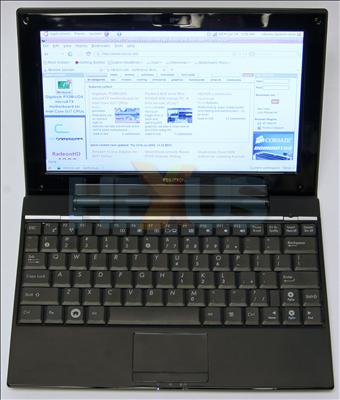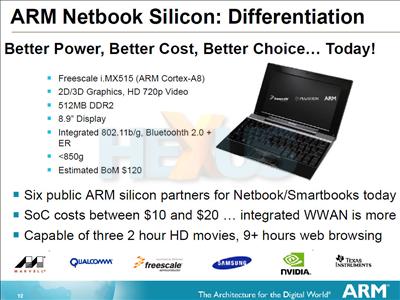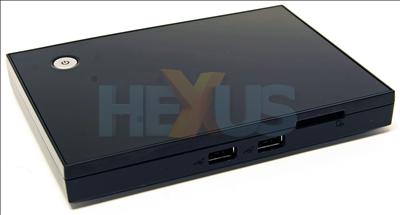Shiny things
To further whet our appetite for the upcoming ARM powered mini-notebooks, Morris brought in a couple of prototypes. This netbook from Pegatron - the component manufacturing arm of ASUS - has been knocking around for a little while, but this was the first time we got to play with one.
The Pegatron was running Ubuntu and provided a nice, quick browsing experience. The most conspicuous feature, however, was how light it was and how cool it runs - it has no fan.
Battery life claims don't have much meaning until we're able to benchmark it ourselves, but the BoM (bill of materials) of $120 would enable products to priced comfortably below the critical price points ARM has identified as $200 and 1,000 RMB. A mini-notebook priced below £100 would certainly get some attention over here.
The other shiny thing on display was a very small desktop box. There weren't many details about this, but Morris estimated a BoM of around $80, which takes it firmly into impulse purchase territory.
















